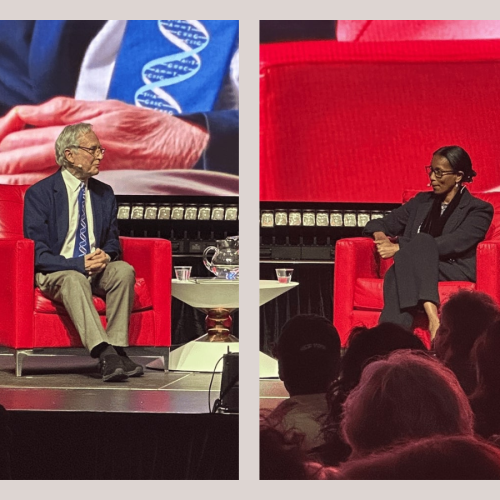Joe Rogan, the most listened-to podcaster in the world, is an agnostic. But a few months ago while talking with Hulk Hogan, a newly baptized believer, he confessed: “If people really lived liked Christians, it’d probably be a better place for most folks.” When Hulk agreed & invited listeners to his church, Rogan responded: “There’s a bunch of power in a bunch of people getting together to agree that they’re there to be a better person in the eyes of God.”
One of the leading figures in the rise of the “New Atheism” in the early part of this century was Christopher Hitchens, until his death in 2011. He wrote an influential book about it, spoke publicly & debated often. Yet his close friend, Larry Taunton, who is a Christian commentator, discussed the Bible with him privately. Hitchens said: “If everyone…had the same qualities of loyalty & care & concern for others that Larry Taunton had, we’d be living in a much better society than we do.”
Those who don’t believe in God aren’t truly able to argue for objective morality. Without God telling us what’s good & bad, how can we all agree to abide by a code of conduct? If we lived in a world with no God, we would each be a relativistic “law” unto ourselves, disastrously doing whatever is right in our own eyes (Judg. 17:6).
But if we all do have an innate moral code written on our hearts by God who is the holy standard for morality, then we all are obligated to obey it (Rom. 2:14-15). Unbelievers who behave well do so because they instinctively follow God’s basic moral law to one degree or another without even knowing it. Once properly instructed, the conscience functions as a moral compass, though it is not fully trustworthy due to the corrupting influence of sin. People can darken their hearts, sear their consciences, & suppress that moral knowledge in order to justify the behavior they want to engage in (Rom. 1:21-32, 1 Tim. 4:2).
To say there’s no God is to say that morality is merely an illusory human construct with no validity beyond fluctuating feelings. Nobody truly lives by an atheistic set of morals because there’s no way to say “should” because there’s no one giving an “ought.” When atheists claim that a person can still be moral without being a believer, they’re correct only because they’re still living by the moral code God placed on their hearts. They have to “steal” from Christian morality to have any sense of “should” or “oughtness.” Only God can offer a transcendent & transcultural moral authority.
Another famous atheist, Ayaan Hirsi Ali, declared a few months ago that she converted to Christianity. She was first a Muslim but then became a prominent critic of Islam, & a women’s rights activist, & a politician. She turned to atheism because it seemed to be an intellectual “faith” that promised humanistic reason. But she discovered that it wasn’t as satisfying as she thought it would be. She noted that atheism leaves a God-shaped hole in society, a “nihilistic vacuum,” that opens the door to the harmful ideologies of authoritarianism, Islamism, & cult-like wokeness. Atheism cannot equip us for a civilizational war against such threats.
Searching for meaning & peace, she pivoted to Christianity which promotes life, dignity & freedom. She realized that so many of the blessings & freedoms we take for granted in Western society “find their roots in Christianity.” Some were shocked at the conversion of this intellectual heavyweight. Others questioned if she had really experienced personal redemption while only embracing a utilitarian Christianity that was good for society, much like Thomas Jefferson did.
Earlier this month she spoke at a conference with one of her former mentors & influential figureheads of the New Atheism, Richard Dawkins. He had earlier written publicly about his disappointment & disbelief in her conversion. Now he hoped to persuade her that she wasn’t really Christian, but she humbly replied: “I used to mock Christianity [like you]…I regret it.” Dawkins became convinced, not about God, but about her sincerity.
Even Dawkins himself has recently softened & conceded that he identifies as a “cultural Christian.” He still finds Christian beliefs to be nonsense but agrees that advocating unbelief leaves no viable moral alternatives for society. He used to rail against all religions, but now admits to his enjoyment of Christmas carols, & laments the loss of cultural Christianity. But it was his evangelistic fervor for atheism that helped create a worse world. He laments postmodern thought & woke ideology which sees all “truths” equally valid. Yet it was his very arguments that not only undermined belief but the very concept of reason. Without God there is no objective truth or morality.
Even atheists prefer to live in a Christian neighborhood.


